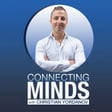
Optimizing Your Brain with Neurofeedback /w Dr. Andrew Hill
Are you following health trends that actually harm your body? In my eye-opening masterclass "The 7 Popular But Deadly Health Fads," I reveal how common health practices promoted by influencers and gurus might be ravaging your gut, accelerating disease, and shaving years off your life.
Discover which popular diets, supplements, and health rituals are secretly sabotaging your health and learn what to do instead. I explain why these seemingly healthy habits are damaging your body and provide actionable alternatives for true longevity.
Register for free access to this essential health information at https://www.livelongerformula.com
---
PhD in Cognitive Neuroscience from UCLA and has extensive experience in the field of neurofeedback and QEEG.
Dr. Hill is an expert in functional brain health and performance optimization, and has lectured on Neuroscience, Gerontology, & Psychology at UCLA.
Website: https://peakbraininstitute.com/
